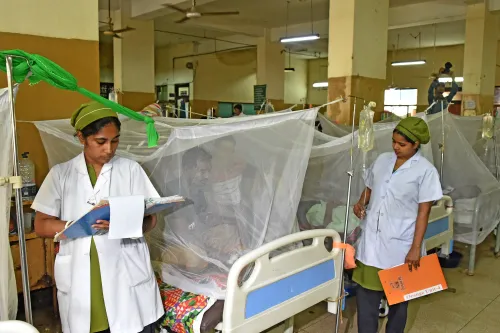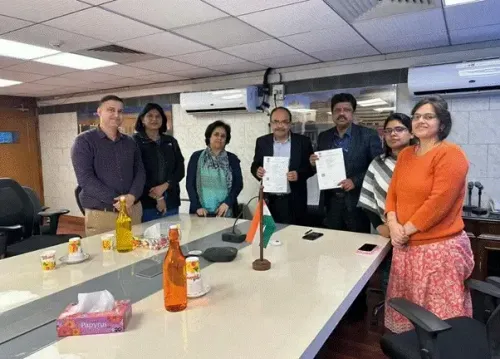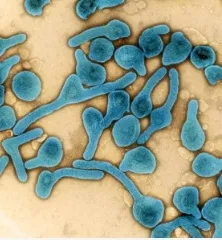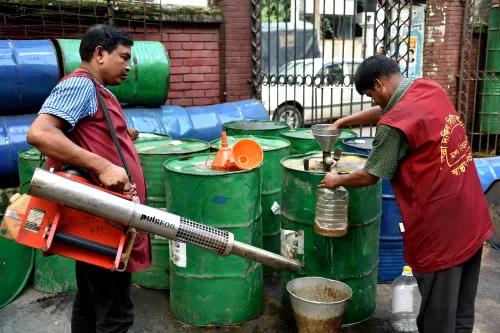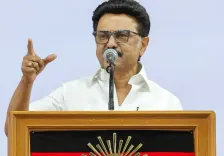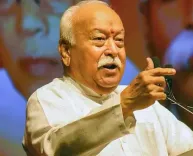Is the National One Health Mission India's Key to Pandemic Preparedness?
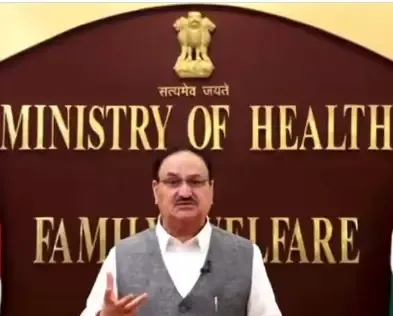
Synopsis
Key Takeaways
- The National One Health Mission is a holistic approach to health security.
- It integrates multiple sectors for coordinated responses.
- Establishment of BSL-3 and BSL-4 labs enhances detection capabilities.
- Technology facilitates collaboration and data sharing.
- A unified response is essential for effective pandemic preparedness.
New Delhi, Nov 20 (NationPress) The National One Health Mission (NOHM) represents a pivotal advancement in India's strategy for pandemic preparedness, remarked JP Nadda, the Union Health Minister, during a video address on Thursday.
In his address at the National One Health Mission Assembly 2025, Nadda emphasized the Assembly's theme, ‘One Earth, One Health, One Future,’ which aims to bolster health security and improve readiness for future pandemics.
“The NOHM is a landmark initiative in India’s pandemic preparedness efforts,” Nadda stated.
This Mission encompasses 16 diverse Central and State Ministries/Departments, integrating sectors such as human health, animal health, environment, agriculture, pharmaceuticals, defense, earth sciences, space sciences, and disaster management.
Nadda described the National One Health Mission as a remarkable example of comprehensive governmental and societal collaboration. “For the first time, we have unified all pertinent ministries and departments to jointly promote the health of humans, animals, plants, and the environment,” he noted.
The Minister pointed out that the Mission has initiated crucial actions, such as integrated monitoring across slaughterhouses, bird sanctuaries, zoos, and urban wastewater systems to track antimicrobial resistance and infectious agents.
He also mentioned the formation of a national network of 23 BSL-3 and BSL-4 laboratories under this Mission.
“These high-containment laboratories serve as our primary defense against emerging or evolving pathogens, significantly boosting our capacity for early threat detection and rapid response,” he remarked.
He stressed that the One Health approach will facilitate early warning systems for epidemics and pandemics, support integrated solutions, and ensure India is prepared for the future.
Dr. V. K. Paul, Member (Health) of NITI Aayog, underscored the necessity for coordinated and collective efforts across various sectors as the world battles zoonotic diseases and climate-sensitive health challenges.
“NOHM is a long-term commitment designed to establish surveillance networks and mechanisms that connect ministries, institutions, and academia through technology-driven systems,” Paul added.
He urged for a “coordinated and prompt response,” stating that outbreak investigation, risk communication, and coordinated actions must be synchronized at every level. The availability of medical countermeasures—vaccines, diagnostics, and therapeutics—at scale is also vital for preparedness.
On this occasion, the BSL-3 Laboratory Network SOP Compendium was unveiled to ensure laboratories comply with standardized protocols.
“India’s national network of BSL-3 and BSL-4 laboratories is now fully equipped to support early detection and response to One Health threats and impending pandemics,” Paul remarked.

